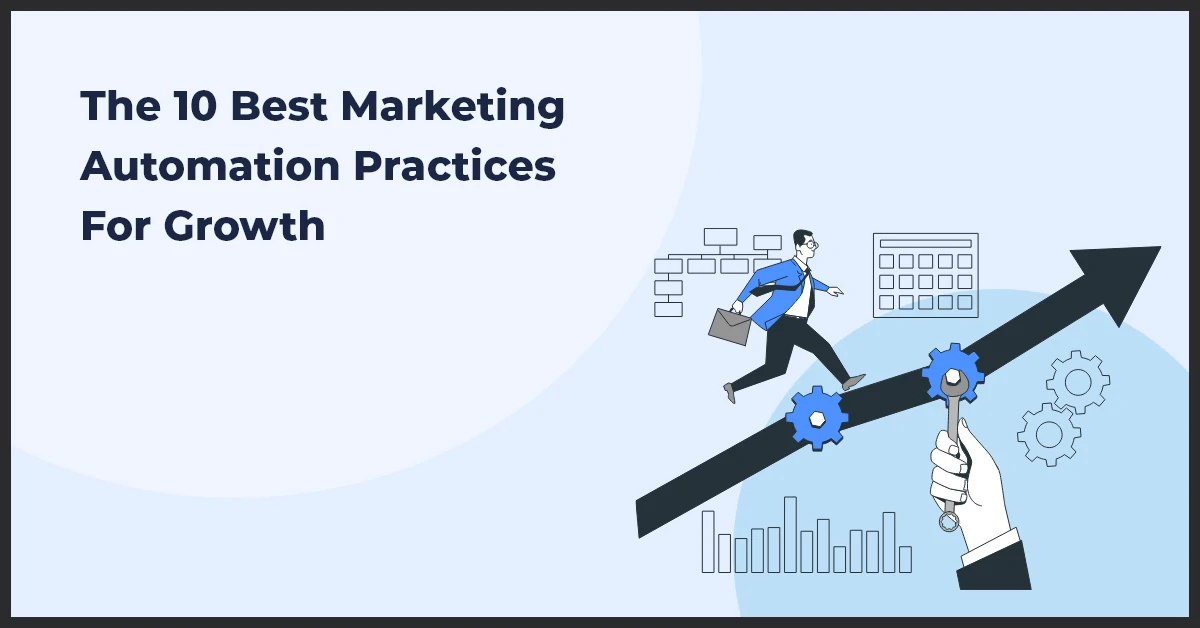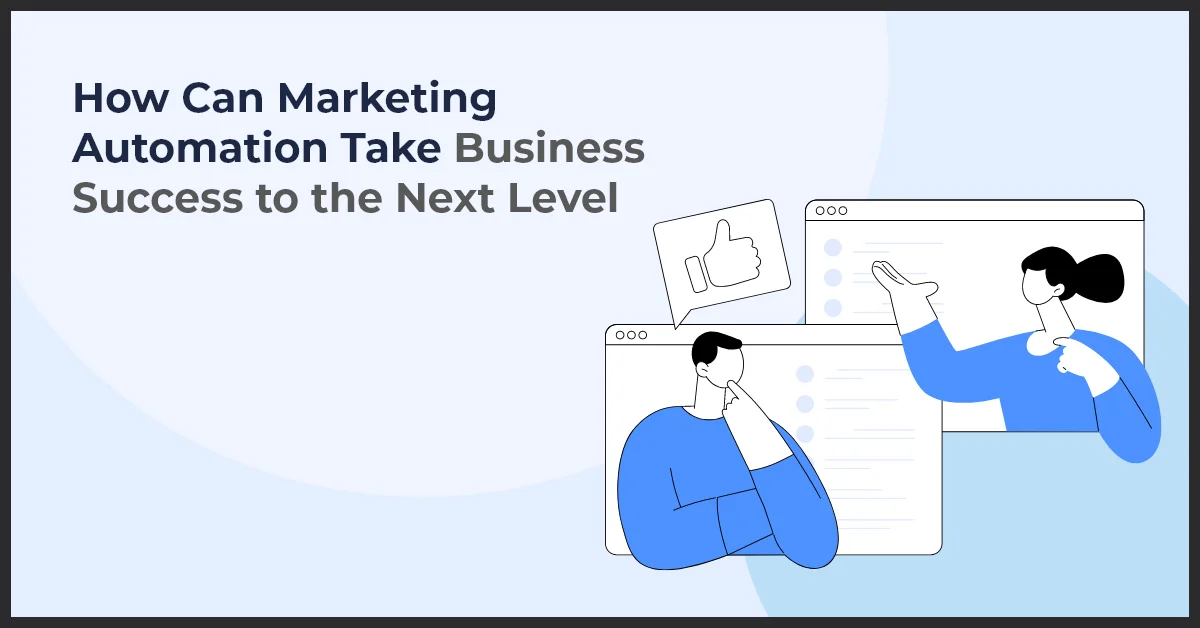The 10 Best Marketing Automation Practices For Growth

Published on: May 19, 2020
Updated on: July 02, 2024
556 Views
- Marketing Automation
5 min read
You want to get new leads and convert those leads into customers. In order to do that, you need to effectively target your leads. In the old days, that meant poring over endless spreadsheets, trying to find similarities among leads so you can tailor your marketing as efficiently as possible.
Marketing Automation practices have changed all that. Marketing tasks that were once repetitive (yet necessary) can now occur with the click of a button.
Here Are Ten Of The Best Marketing Automation Practices That Can Drive Growth
1.Map out your lead stages
In categorizing your leads by the level of engagement, you can create ‘lead stages.’ These stages often depend on your leads’ level of awareness, interest, and budget. Common lead stages range from ‘all names,’ or a lead that is part of all possible targets, through immediate stages like ‘engaged’ and ‘prospect’ and finally to ‘customer.’ Grouping your leads into stages is the best way to pursue Lead Management, which is a good way to grow your customer base.
2. Implement a lead scoring and qualification process
One of the first steps to converting leads into customers is creating a scoring and qualification process. There are two broad classifications. The first is an MQL or a market-qualified lead. An MQL is engaged with your brand through an inbound channel, like your website, social media, or advertisements. An MQL has potential value as a lead but isn’t yet sales-ready. A SQL (sales-qualified lead), on the other hand, is much closer to being a customer and has already taken certain actions that make them sales-ready. With that qualification process, you can focus on what matters: turning MQLs into SQLs and SQLs into customers.
3. Segment and target your leads
When you segment your leads, you’re dividing them into small groups that are similar in key ways. Why is that important? Every individual is different, but you can’t advertise differently to every individual. Instead, you can sell to a category of individual, which gives the lead (soon to be a customer!) a feeling of personalization while also being an efficient marketing strategy. Effective segmentation creates economies of scale, which ensure you aren’t wasting your marketing and R&D resources.
4. Build personalization into outreach
Gone are the days when automation and personalization were mutually exclusive. Now, Marketing Automation is a powerful tool for personalizing your outreach to leads and customers, which makes lead generation occur faster.
5. Enable an omnichannel approach
The modern customer is at the center of dozens of information channels. TVs, phones, laptops, social media platforms, digital assistants, and print news are all popular sources of information, among many others. But one person— or even a full marketing team— couldn’t possibly keep up with the manifold ways that modern consumers receive information. Luckily, Marketing Automation can. An omnichannel approach embraces all the ways your customers get their media, which means- following this marketing automation practice, you can market 24/7 to your customers.
6. Scale and organize lead generation assets
Lead generation is an important step to growing your business. Assets are the tools you use to pique consumer interests in your products and services. Marketing Automation makes those assets more efficient, so your investment yields greater returns.
7. Enrich your lead database
At its core, lead enrichment is the process of collecting and verifying data for lead generation. As you probably guessed, marketing automation practices make that process faster and easier.
8. Automate engagement tactics like Pop-Ups
When it comes to B2B marketing, an often overlooked tool is pop-ups. Good pop-up advertising isn’t about covering a webpage with flashing advertisements. Instead, it’s about re-focusing the customer’s attention. Exit popups, for instance, appear when a customer is about to leave your webpage. They work because they grab attention and create a feeling of urgency, giving the lead a one-of-a-kind offer that disappears as soon as they click away.
Exit popups aren’t about repeating the same information as your lead page. Think of it this way: if a visitor isn’t convinced by your carefully optimized landing page, they won’t be enamored by the same information shoved in their face when they try to leave. Instead of losing the sale, an exit pop-up provides the visitor with a special deal or promotional offer that gets them to convert.
9. Enable A/B testing
A/B testing is an excellent way of optimizing marketing results. By measuring the ‘A’ version of marketing copy on a landing page against the ‘B’ version, you can figure out what messaging generates the highest levels of lead conversions. Marketing automation makes A/B testing easy and scalable across emails, landing pages, advertising, etc.
10. Provide full-funnel analytics
Marketing Automation practices allow you to measure and optimize every aspect of your customer lifetime. From suspects at the top of the funnel to sales activity at the bottom of the funnel and product engagement and retention beyond that. With full-funnel analytics across multiple lead stages, you can gauge your success against best in class companies, instead of guessing in the dark about how well your business is doing.
Conclusion
Many businesses struggle to generate a satisfactory ROI from their Marketing Automation practices. The most common reason for not using marketing automation software to its greatest potential is the lack of experienced resources. That’s where we come in, Growth Natives will help you scale your Marketing Automation operations to get the most out of your marketing automation software and make lead generation and management second nature to your business.



